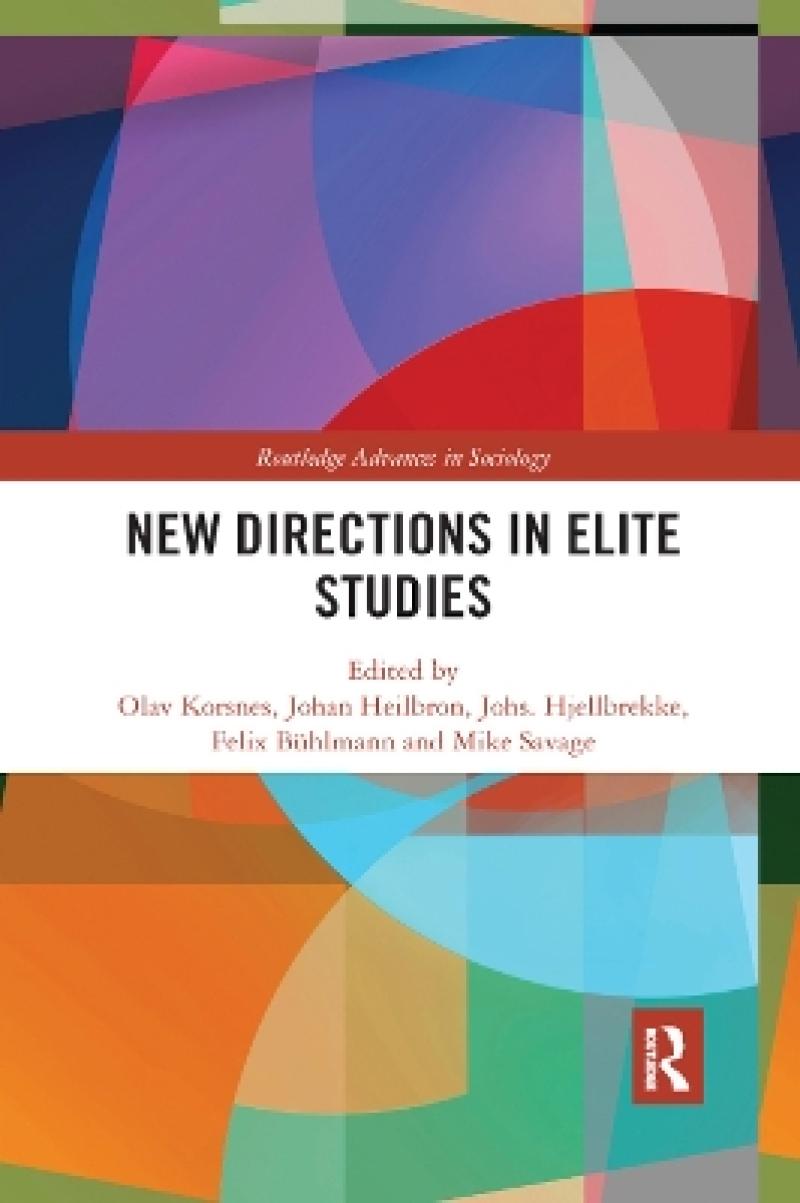Since the financial crisis, the issue of the ‘one percent’ has become the centre of intense public debate, unavoidable even for members of the elite themselves. Moreover, inquiring into elites has taken centre-stage once again in both journalistic investigations and academic research. New Directions in Elite Studies attempts to move the social scientific study of elites beyond economic analysis, which has greatly improved our knowledge of inequality, but is restricted to income and wealth. In contrast, this book mobilizes a broad scope of research methods to uncover the social composition of the power elite – the ‘field of power’. It reconstructs processes through which people gain access to positions in this particular social space, examines the various forms of capital they mobilize in the process – economic, but also cultural and social capital – and probes changes over time and variations across national contexts.Bringing together the most advanced research into elites by a European and multidisciplinary group of scholars, this book presents an agenda for the future study of elites. It will appeal to all those interested in the study of elites, inequality, class, power, and gender inequality.
Les mer
New Directions in Elite Studies attempts to move the social scientific study of elites beyond economic analysis, which has greatly improved our knowledge of inequality, but is restricted to income and wealth. In contrast, this book mobilizes a broad scope of research methods to uncover the social composition of the power elite – the ‘fiel
Les mer
Chapter 1: IntroductionJohan Heilbron, Felix Bühlmann, Johs. Hjellbrekke, Olav Korsnes, Mike SavageSection 1: The myth of a global business elite Chapter 2: The international business elite – fact or fiction?Michael HartmannChapter 3: Degrees of transnationalization: the case of the Dutch business eliteRob Timans and Johan HeilbronChapter 4: Dynamics of internationalization. A sequential analysis of the careers of Swiss Banking elites.Pedro AraujoSection 2: Scrutinizing the power elite and the field of powerChapter 5: A Place at What Table? An Analysis of Symbolic Capital Hierarchies at the Norwegian Central Bank’s Annual Dinner.Johs. Hjellbrekke and Olav KorsnesChapter 6: The gendered reproduction of the upper class.Maren Toft and Magne Flemmen Chapter 7: A Scandinavian Variety of Power Elites? Key Institutional Orders in the Danish Elite NetworksAnton Grau Larsen and Christoph Houman EllersgaardChapter 8: The anatomy of the British economic "elite".Mike Savage, Katharina Hecht, Johs Hjellbrekke, Niall Cunningham and Daniel Laurison Section 3 Social closure and reproduction strategiesChapter 9: The Social History of a Capitalist Class: Wealth Holders in Stockholm, 1914-2006.Martin Gustavsson and Andreas MelldahlChapter 10: Beyond Meritocracy: Wealth Accumulation in the German Upper Classes.Nora Waitkus and Olaf Groh-Samberg Chapter 11: Gendering the elites: an ethnographic approach to elite women’s lives and the reproduction of inequality. Luna GlucksbergSection 4: Elite education, recruitment and legitimacyChapter 12: The Elite Placement Power of Professors of Law and Economic Sciences.Felix Bühlmann, Thierry Rossier and Pierre Benz Chapter 13: Elite … but not that elite. Envisioning Elite Status at a sec
Les mer
Produktdetaljer
ISBN
9780367889067
Publisert
2019-12-12
Utgiver
Vendor
Routledge
Vekt
600 gr
Høyde
234 mm
Bredde
156 mm
Aldersnivå
U, 05
Språk
Product language
Engelsk
Format
Product format
Heftet
Antall sider
322
Biographical note
Olav Korsnes is Professor of Sociology at the University of Bergen, Norway
Johan Heilbron is a historical sociologist and Director of Research at the Centre Européen de Sociologie et de Science Politique de la Sorbonne (CESSP-CNRS-EHESS) in Paris, France
Johs. Hjellbrekke is Professor of Sociology at the University of Bergen, Norway, and Director of the Norwegian University Centre in Paris, France
Felix Bühlmann is Assistant Professor of Life Course Sociology at the University of Lausanne, Switzerland
Mike Savage is Martin White Professor of Sociology and co-Director of the International Inequalities Institute, LSE, UK
